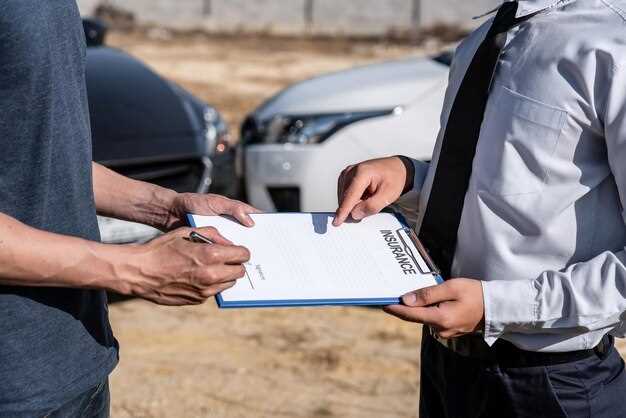
The landscape of towing regulations varies significantly from state to state, with each jurisdiction establishing its own set of laws that govern the towing industry. Understanding these state towing laws is crucial for both consumers and towing professionals to navigate the complexities associated with vehicle removal, storage, and recovery.
State laws pertaining to towing are designed to protect the rights of vehicle owners while also ensuring that towing companies operate within a defined legal framework. These regulations often dictate how and when a vehicle can be towed, requiring clear signage and consent protocols in many situations. Furthermore, the laws outline the responsibilities of towing companies in maintaining transparency regarding fees, procedures, and the handling of towed vehicles.
Compliance with state towing laws not only ensures fair treatment of vehicle owners but also establishes legitimacy for towing operators. In each state, varying regulations may impose specific requirements on licensing, insurance, and operational procedures that towing companies must follow. This guide aims to provide a comprehensive overview of the essential towing regulations and requirements that are applicable across different states.
State Towing Laws: A Guide to Regulations and Requirements
State towing laws vary significantly across jurisdictions, establishing essential rules and regulations that govern the towing industry. Understanding these laws is crucial for both towing operators and vehicle owners.
Regulations determine when and how a vehicle can be towed, often stipulating the conditions that necessitate towing, such as illegal parking or safety hazards. Many states require towing companies to have specific licenses and certifications, ensuring that operators meet safety and service standards.
Notification requirements are another critical aspect of state towing laws. In most jurisdictions, towing companies must inform vehicle owners promptly after a tow has occurred, providing details like the lot location and contact information for retrieval. Additionally, some states mandate that towed vehicles are held for a specific duration before they can be sold or disposed of.
Price regulations are also common, with many states setting maximum fees that can be charged for towing services. This is designed to protect consumers from excessive charges and ensure fair pricing across the industry.
In summary, state towing laws establish a framework of rules that govern the towing process. Familiarizing oneself with these regulations can help both towing professionals and vehicle owners navigate their rights and responsibilities effectively.
Towing Company Licensing and Requirements by State
Towing companies operate under a variety of regulations that differ significantly from state to state. Understanding the licensing requirements and laws is critical for ensuring compliance and operating legally.
Several common licensing requirements typically exist across states:
- Business License: All towing companies must obtain a business license from the state in which they operate.
- Towing License: Many states require specific towing permits or licenses, which may involve background checks and vehicle inspections.
- Insurance Requirements: Operators must carry liability and garage keeper’s insurance, with minimum coverage amounts varying by state.
The following is a brief overview of towing company requirements in select states:
- California: Requires a tow truck permit issued by the California Highway Patrol (CHP) and proof of insurance with specific limits.
- Texas: Mandates a towing operator license via the Texas Department of Licensing and Regulation, along with liability insurance of at least $300,000.
- Florida: Towing companies must obtain a local business tax receipt and a towing license from the relevant county or city authority.
- New York: Requires a towing license issued by the New York State Department of Motor Vehicles (DMV), and companies must comply with local ordinances.
In addition to state regulations, towing companies must adhere to local rules that might impose additional requirements. This can include specific signage on vehicles, location restrictions for impounding, or additional training for drivers.
To remain compliant, towing companies should regularly review state laws and local regulations, as changes can occur frequently. It is advisable for operators to consult with legal experts or local authorities when navigating these requirements.
Understanding Vehicle Release Procedures After Towing

After a vehicle is towed, understanding the release procedures is crucial for owners to retrieve their property efficiently. Each state has specific towing laws and rules that dictate how and when a vehicle can be released. Typically, the first step involves identifying the towing company responsible for your vehicle, which is usually indicated by signage at the towing location.
Owners must ensure they have proper identification, such as a driver’s license or vehicle registration, to prove ownership before attempting to recover the vehicle. In many jurisdictions, proof of payment for any outstanding fines or towing charges is required. It’s essential to check local regulations, as some areas may impose additional requirements, such as payment in cash or specific hours for vehicle retrieval.
Once the necessary documentation is presented, the towing company will usually process the request and inform the owner of any fees that must be paid. Fees can vary significantly depending on factors like the duration of the tow and storage. Owners should be aware of their rights to request a written itemization of all charges, as this can help in disputing any unexpected fees.
In some places, laws may offer a grace period during which a vehicle can be claimed without incurring extra storage fees. Understanding these rules can save vehicle owners both time and money. Additionally, if a vehicle was towed improperly, owners have the right to challenge the tow, which may lead to a fee waiver.
In conclusion, being informed about the specific vehicle release procedures after towing can facilitate a smoother recovery process. Always research local towing laws to ensure compliance and safeguard your rights as a vehicle owner.
Consumer Rights During Towing and Impound Process

When a vehicle is towed, consumers have specific rights that are protected under state laws. These regulations vary by state, but generally, they ensure that individuals are treated fairly during the towing and impound process. It’s crucial for vehicle owners to be aware of their rights to effectively navigate this situation.
One of the primary rights consumers hold is the right to be informed. Towing companies are typically required to notify the vehicle owner of the tow, including the location of the impound lot and the reason for the towing. This notification may come in the form of a written notice or through verbal communication, depending on state rules.
Additionally, consumers have the right to retrieve their vehicles during regular business hours without unnecessary delay. Most states mandate that impound lots must be open for a certain number of hours each day, allowing vehicle owners to access their property conveniently.
Consumers are also entitled to transparency regarding the fees associated with towing and storage. State rules often require that towing companies provide a clear breakdown of costs, including towing fees, daily storage charges, and any additional expenses. This ensures that vehicle owners can make informed decisions regarding their situation.
It’s important to note that consumers have the right to dispute the tow if they believe it was unjust. Many states provide a process for appealing towing decisions, which can involve filing a complaint with local authorities or a hearing to contest the charges. Understanding this process is essential for consumers who feel wronged.
Lastly, state regulations often protect consumers from predatory practices. Towing companies must adhere to ethical guidelines, and individuals have the right to report any misconduct. This includes unfair pricing practices, excessive fees, or towing without proper justification.
By being informed about these rights, consumers can better navigate the towing and impound process, ensuring they are treated fairly and in accordance with state laws.





